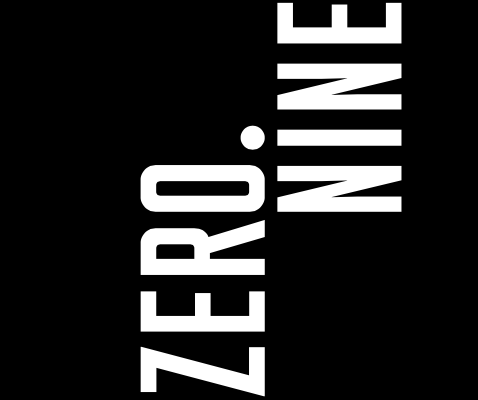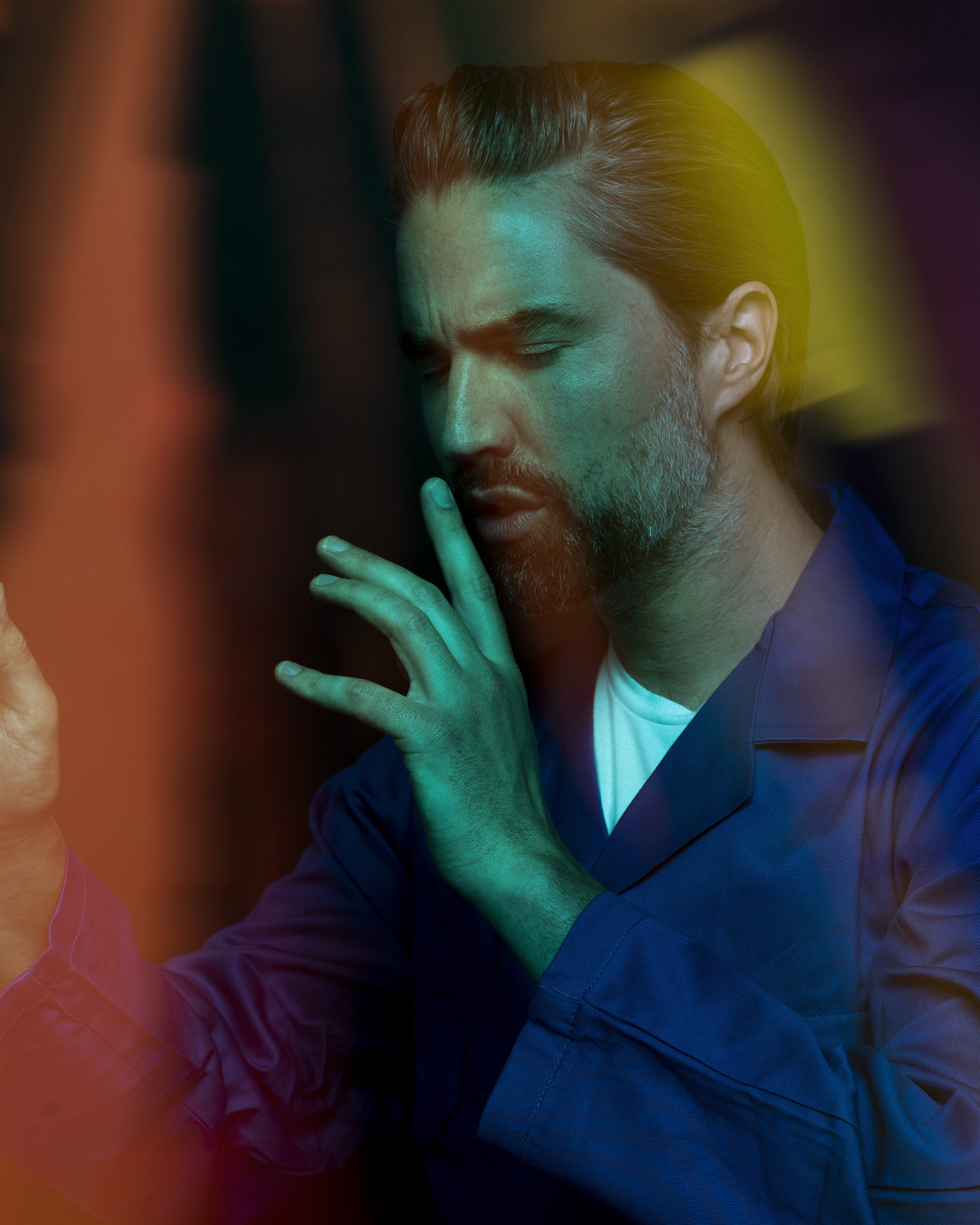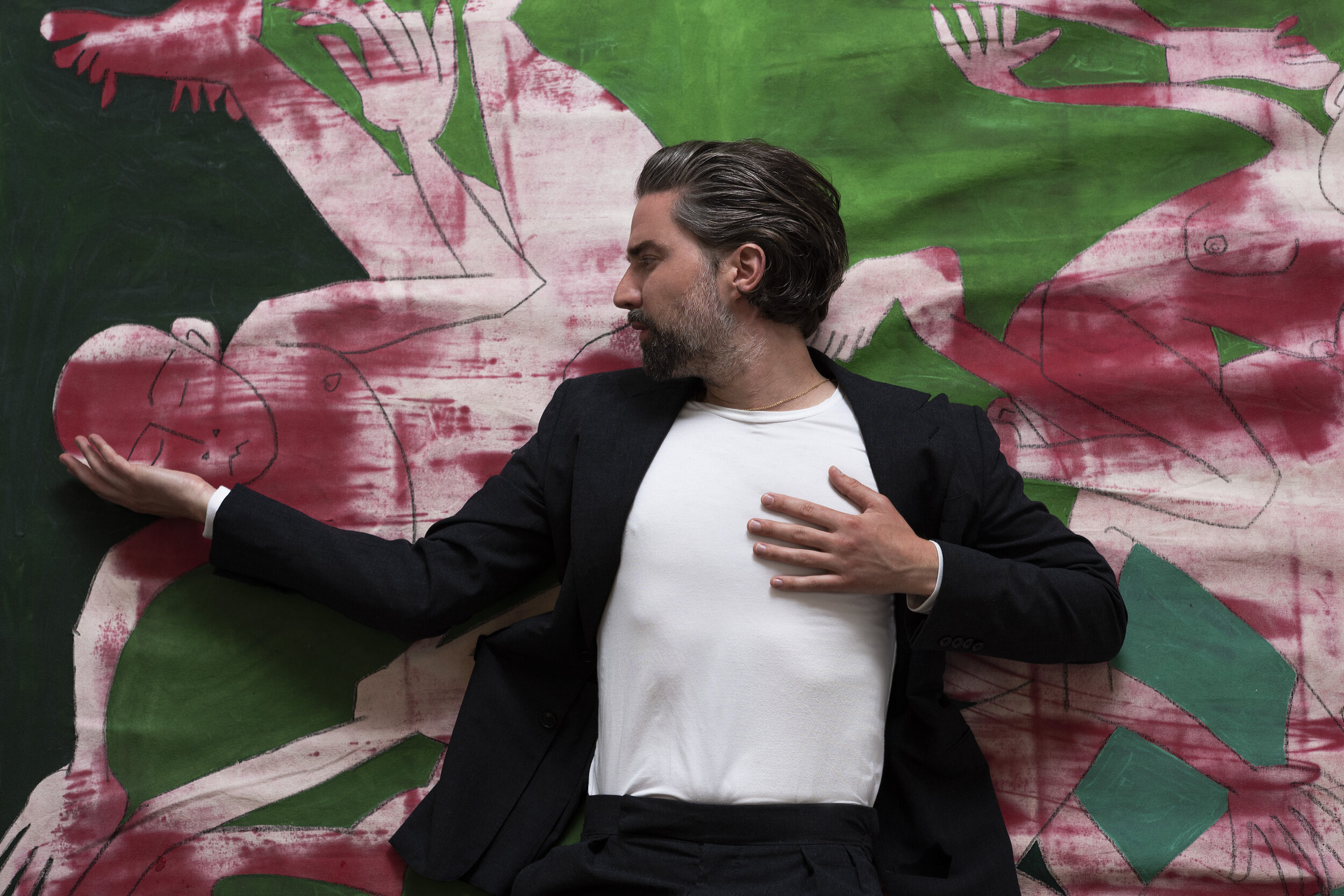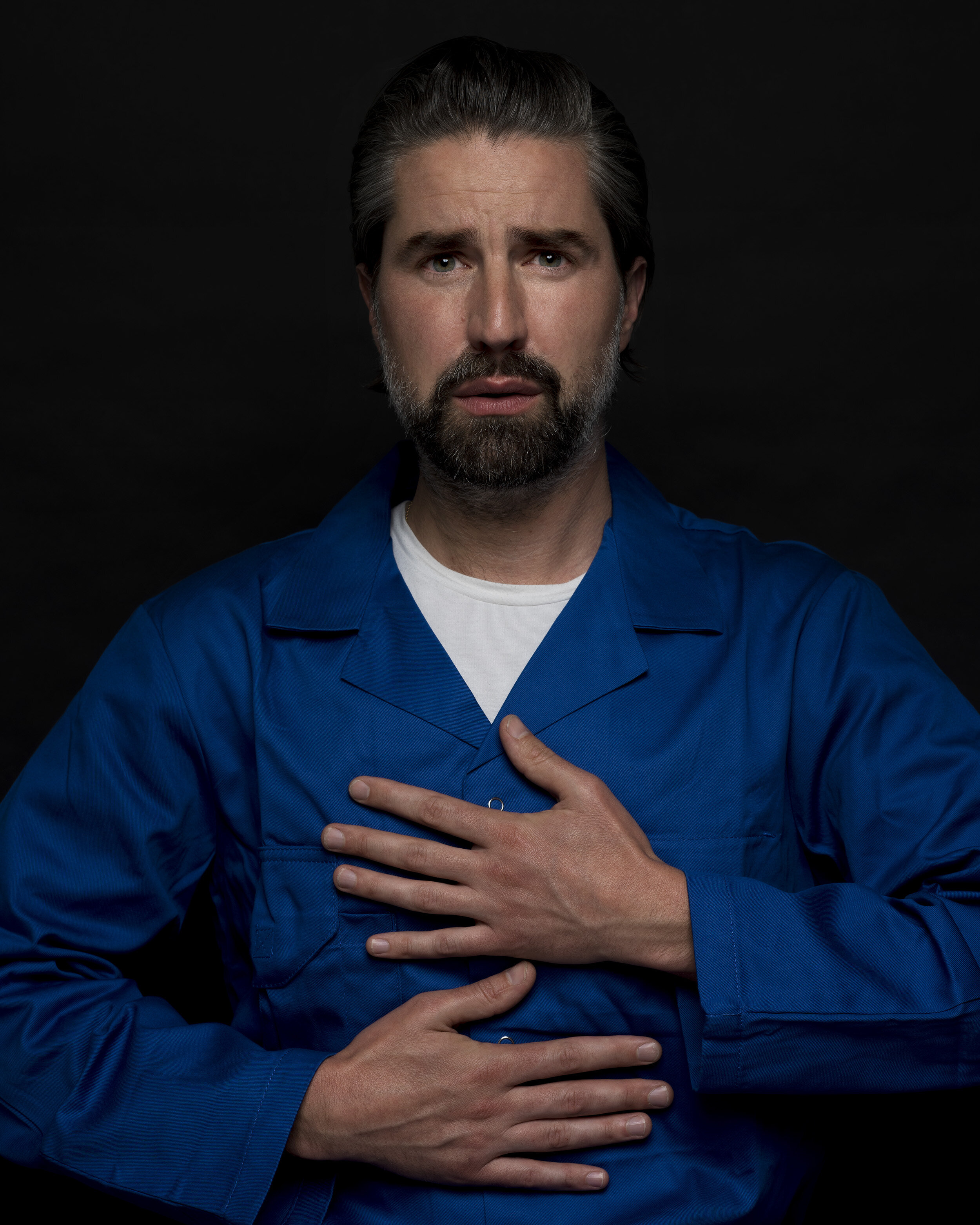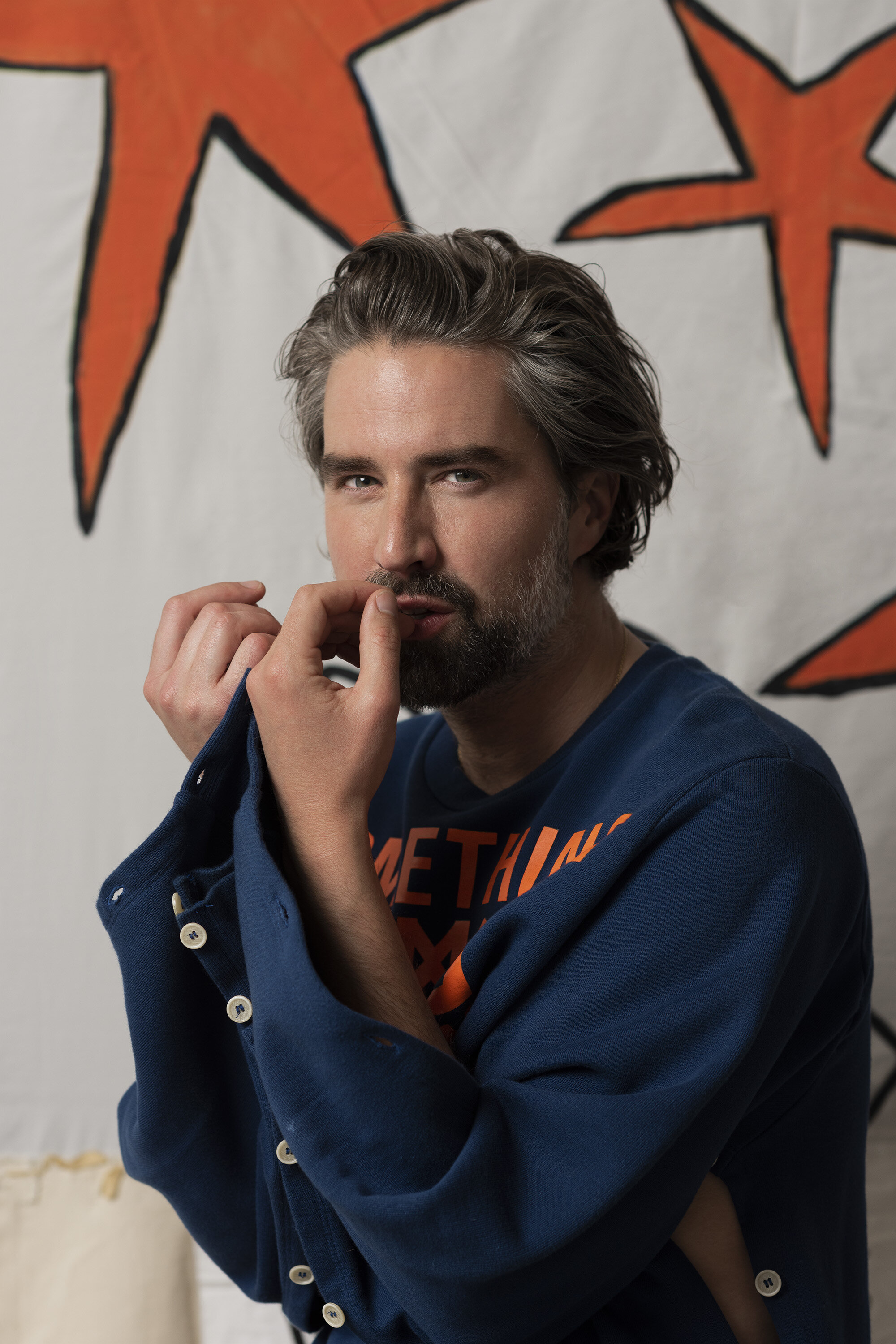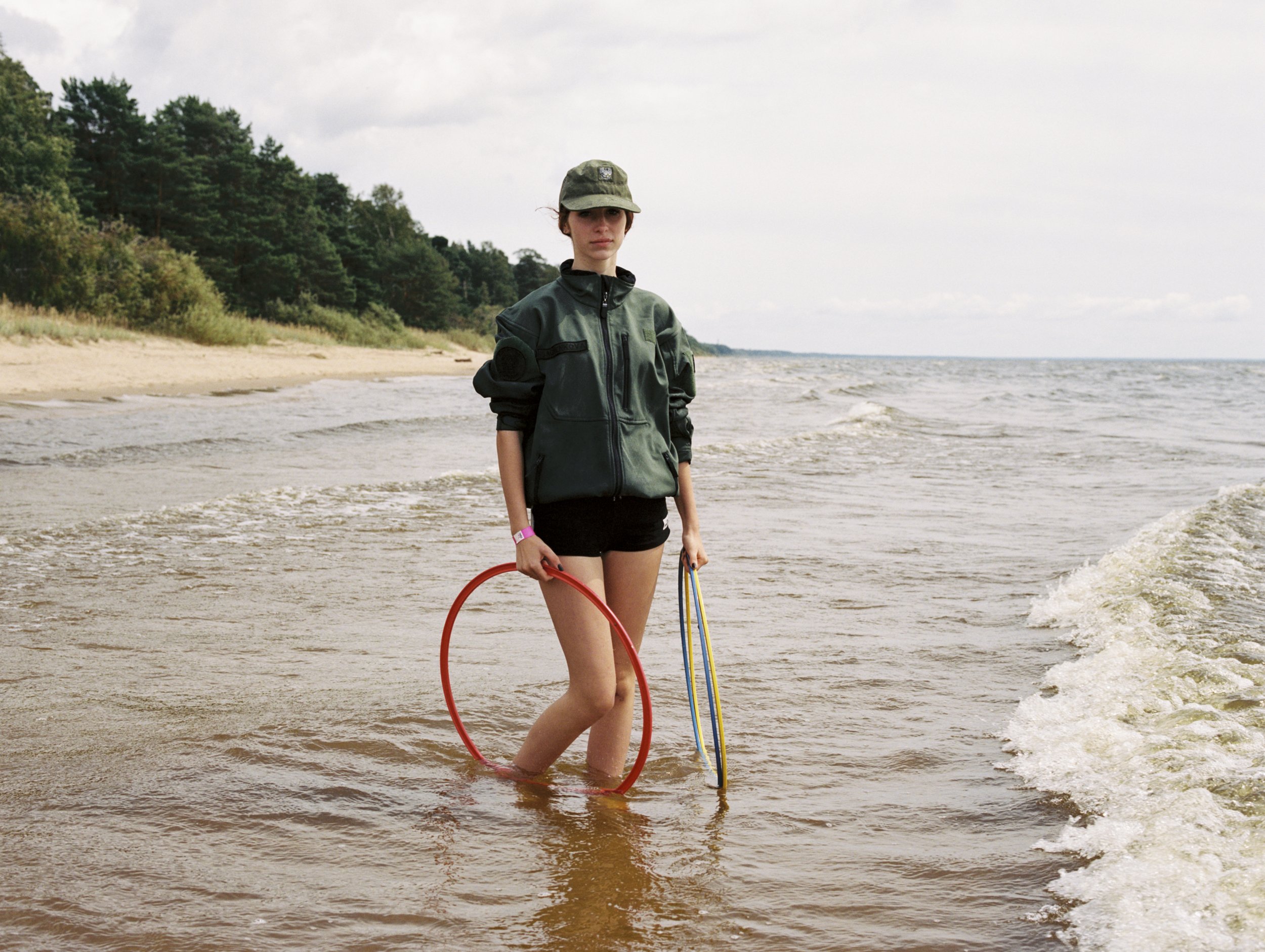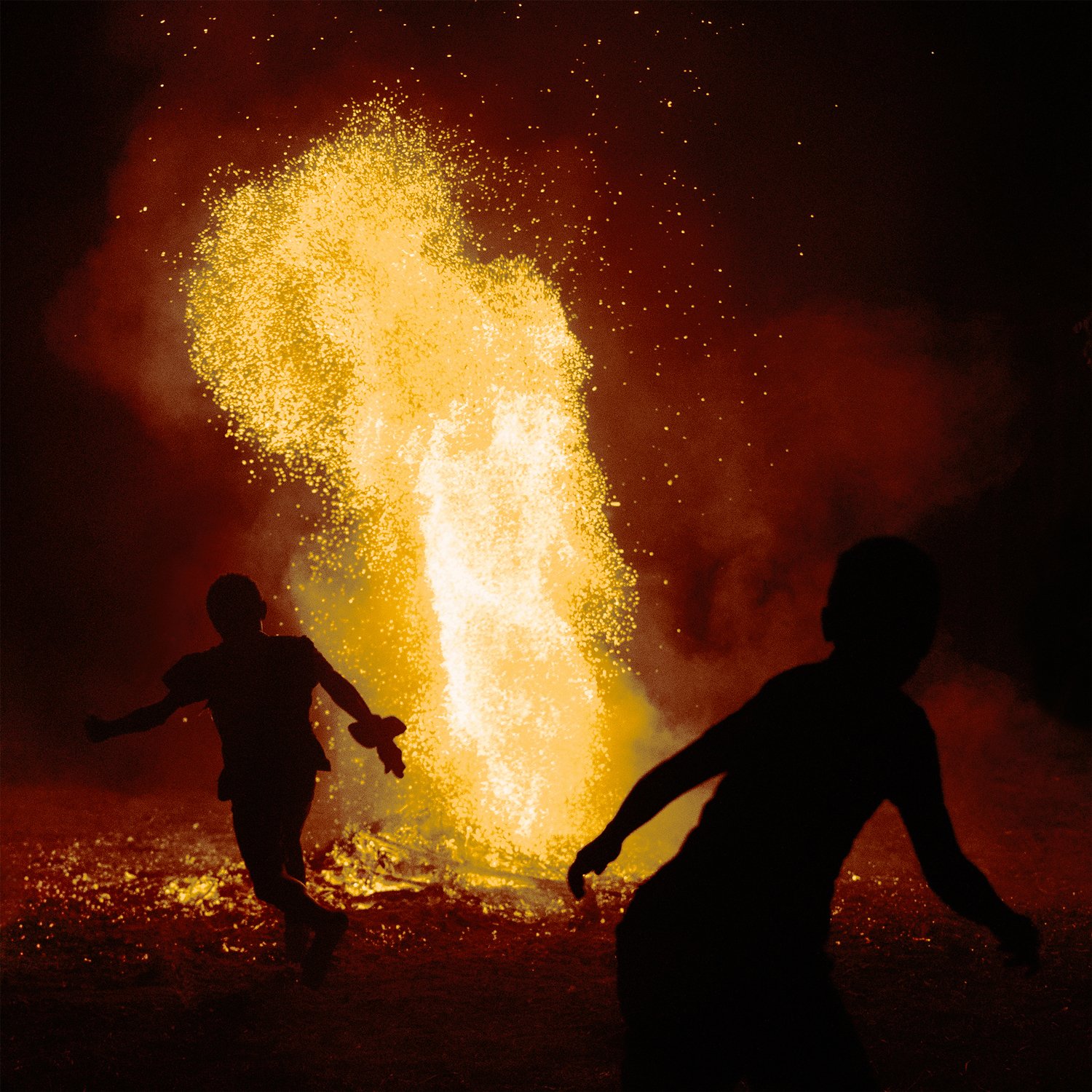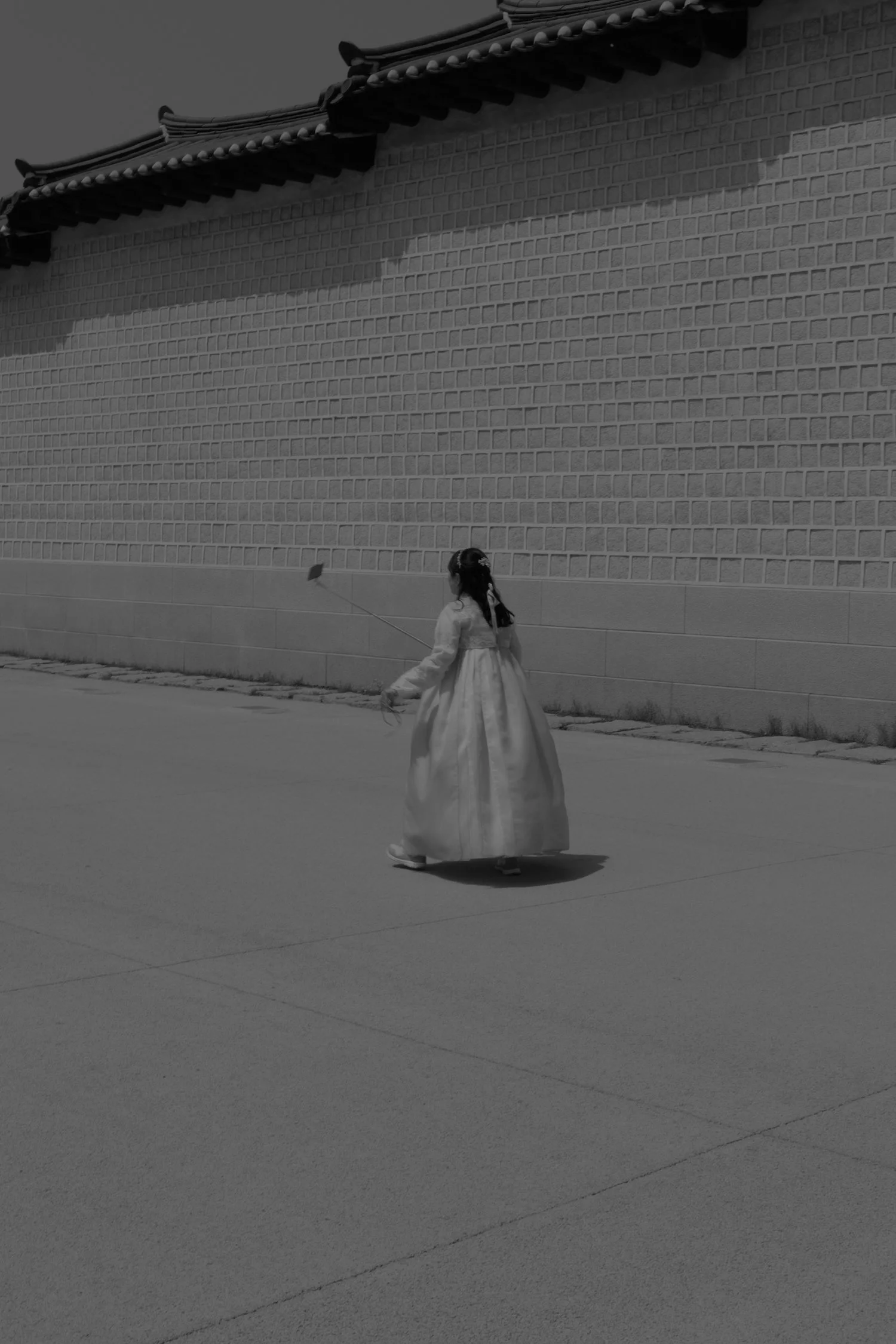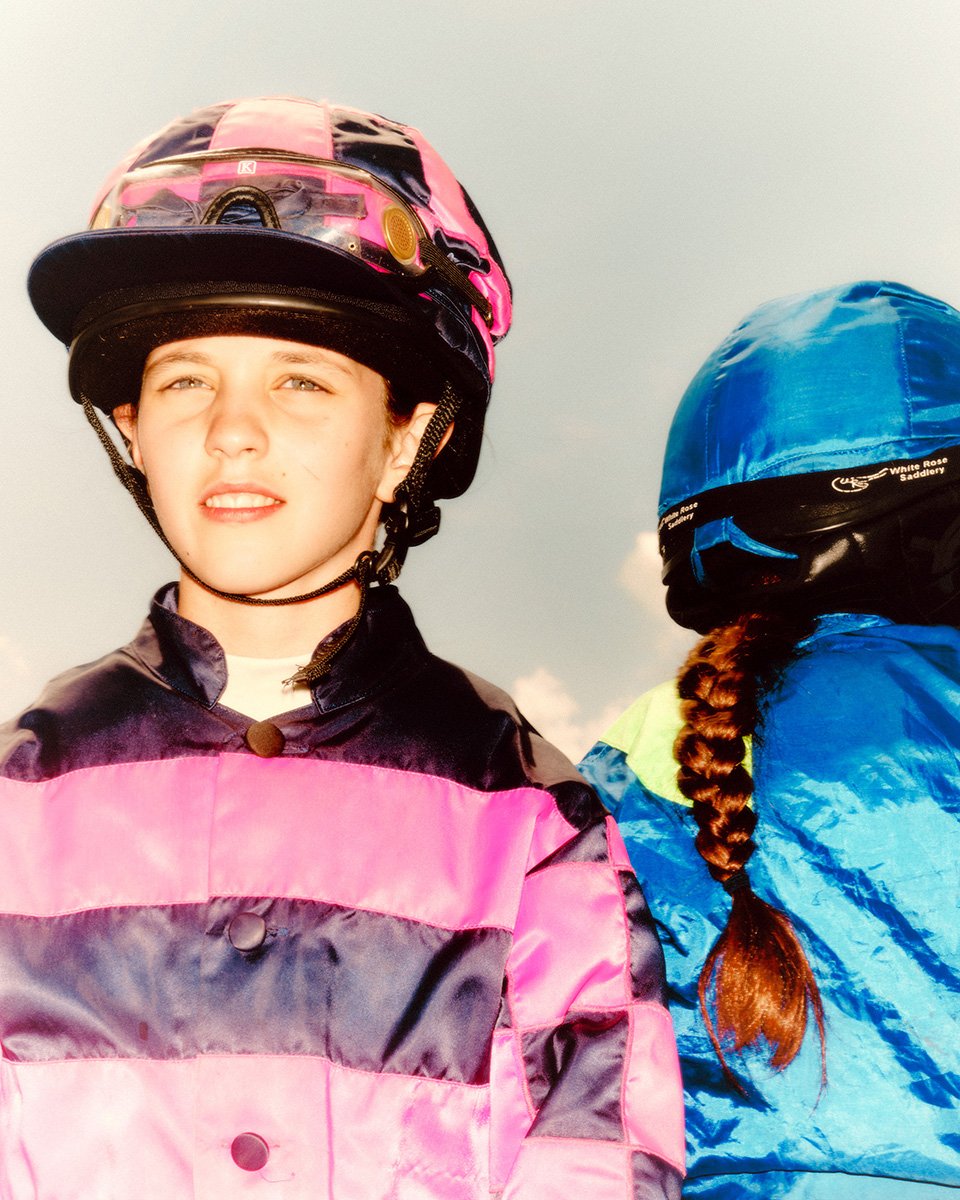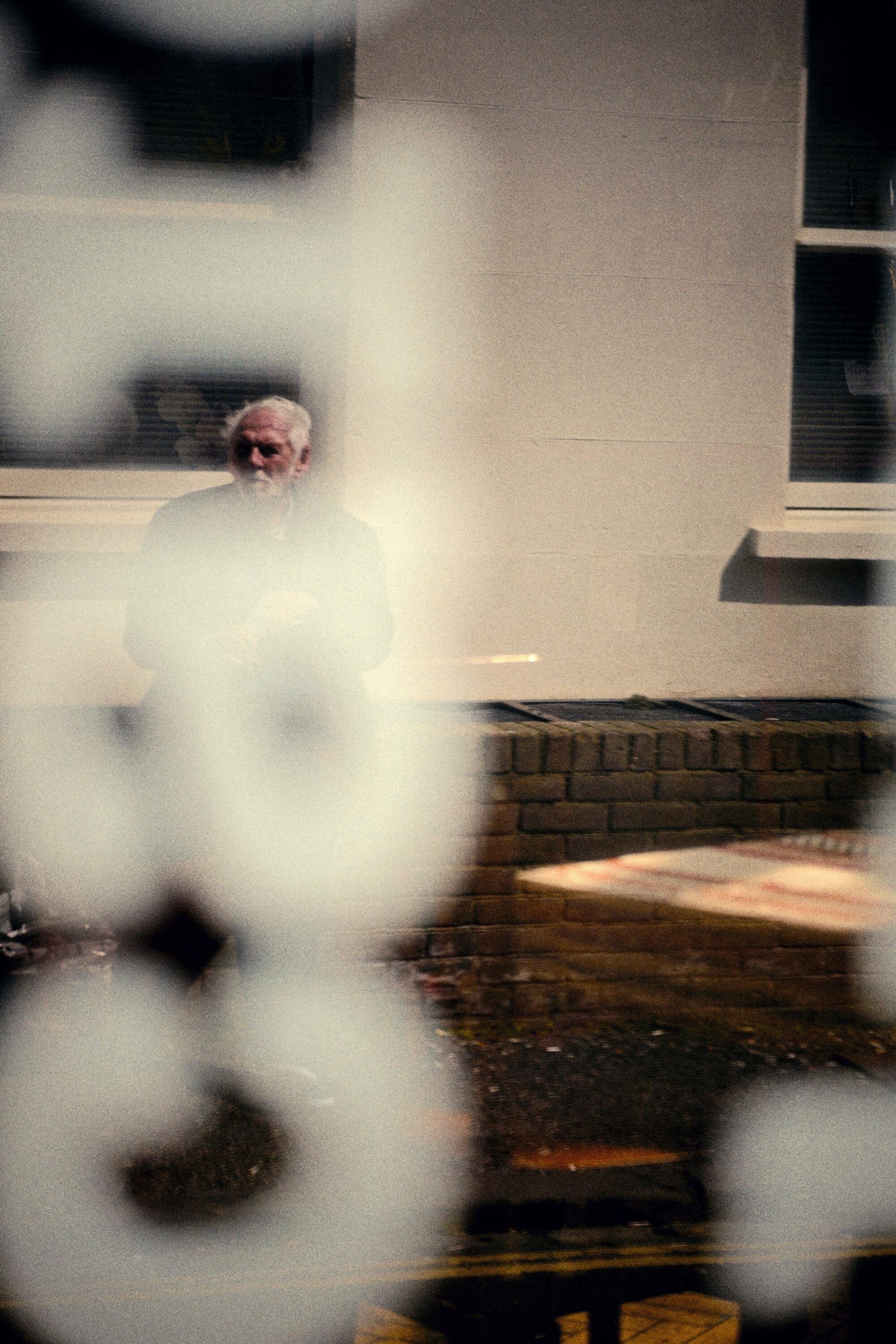Queer Manifesto
The man about town (London and NYC to be exact), Jack Guinness, has just published his first book and manifesto ‘The Queer Bible’, celebrating the works and lives of the global queer community alongside original illustrations by young LGBTQ+ artists. We asked Jack a few questions in-between takes during our shoot, to learn more about his book and his thoughts on gender expression.
Interview Sufiyeh Hadian Photography Christian Trippe Hair & Make-up Elvire Roux Artwork Paul Kindersley Photo Assistant Tom BeckSo, to start, we want to ask about your book, The Queer Bible. How did that idea come to fruition?
It started years ago, when I was watching Ru Paul’s Drag Race, he always uses these amazing lines, like catchphrases from old movies and documentaries, using this kind of cultural language and I didn't feel like I was a part of it. It made me realise that unless you have an older generation of LGBTQ+ people to initiate you into queer culture, you kind of have to find out about it yourself. And I think a lot of people were any kind of kid that's into a subculture goes off and has to learn about stuff themselves. So, you seek out the movies, the music, and I wanted to speed up that process and create something where people could go and learn about their history in one dedicated space. So that's how it all started.
“It began as a website, where I'd ask my heroes to write about their heroes.”
It began as a website, where I'd ask my heroes to write about their heroes. And so, for the Robert Mapplethorpe entry, I managed to track down one of his ex-boyfriends, who wrote this amazing essay about the day he got really wasted; he went to the Chelsea Hotel, and he met a girl called Patti Smith with her then-boyfriend Robert Mapplethorpe and he steals Robert Mapplethorpe off of Patti Smith. He also had these original illustrations that he'd done at the time that no one had ever seen. So, if you don't know who he is, you get this incredible story that makes you want to learn more, and if you do know who they are, you get this untold story. For me, it's all about those jewel narratives. It's about learning about the writer, but also about the subject.
I think that sums up the whole Queer Bible project. It's about learning who we are through community and through other people. It's that feeling of when you walk into your first queer nightclub, and you realise that you're among your own people; that sense of acceptance and connectedness that you've never realised you were missing. That's what the Queer Bible project is. My dream was always to create a beautiful, beautiful book, I've been so happy and challenged and excited and inspired to work with all the amazing contributors and create this project.
Artwork by Paul Kindersley ‘Nymph Frieze II & III, 2018, acrylic and omnigraph crayon on canvas
How did you curate every chapter?
I left it up to the contributors to pick who they wanted. The subject of the essays are chosen by the writers and I had no interference at all with that, so there's some really surprising choices that people made, my only ask was to write about someone or something that genuinely changed their life. In Munroe Bergdorf’s case, she writes about the film ‘Paris is Burning’, where they became who they are, through their work, their music, their films, and literature. You can feel that magic in the essays. The contributors that I banded together is basically the line up to my dream dinner party.
How do you usually celebrate Pride?
When I was younger, I didn't celebrate Pride. I remember my first Pride march, it was probably more of what it should be – less of a celebration and more of a political march when I was really young. I remember finding it really scary and loud, and it was really aggressive. Looking back now I know why it was aggressive because they were obviously fighting for my basic human rights. But as a young child, I didn't understand what was going on, so I was a little bit scared of Pride. I think I also didn't feel that proud of who I was, ironically, so I didn't attend many Pride celebrations.
“The thing that makes me most proud about Pride is seeing kids there and parents of gay people. I think it's a really healing experience.”
As I've gotten older, I began to love Pride and feel the power of being with all those people. And weirdly, the thing that makes me most pride proud about Pride is seeing kids there and parents of gay people. For me, I think it's a really healing experience. I was the face of Levi's Pride a few years ago and they put me on the top of a float going down Oxford Street, I was DJ’ing and I played Vogue, to thousands of people and everyone just kicked off. It's so fun when you're DJ’ing, people go crazy, but I've never seen anything like that. It was like the best of humanity; it was just pure joy. And in that moment, I thought ‘I don't think I'll ever probably have a moment as beautiful and as fun as this.’ It was really overwhelming.
You felt real solidarity?
Yeah, completely. That's a great word, solidarity. I think everywhere feels like a straight space geared towards straight people, so we often only feel safe when we're in a queer space, which by definition, are normally quite small places. I'm never with that many LGBTQ+ people, except for online, where I get a sense of how many LGBTQ+ people of different generations there are of us. There's something about all being together in one place with an intergenerational connection. And so, to be able to connect with people of different generations, and to be together dancing to Madonna's Vogue is pretty fucking incredible.
That sounds perfect. Do you have any plans to celebrate London Pride in September? (Moved from June for 2021 because of the pandemic)
The book comes out in June because it’s International Pride month, so I'm going to have to release the book again in September, which is great, because I can host another party. So yes, I'm going to be doing loads of really interesting activities and joining panel talks. I'm also going to watch lots of panel talks that speak on intersectionality as I really want to learn about all the kind of intersectional subjects, so there's a lot to celebrate and there's a lot to learn.
“It's that feeling of when you walk into your first queer nightclub, and you realise that you're among your own people; that sense of acceptance and connectedness that you've never realised you were missing.”
When you were growing up, did you have any LGBTQ+ icons or people to like look up to, to talk to?
I think growing up, I definitely had icons that I searched out, I sought out. In many ways that mindset, it's like that you're different to the people around you that you don't accept the kind of status quo. It's counter culture in many ways. And I think that's quite a universal experience for a lot of young people. And so yes, to go back and answer your question, yes, there were people that I looked up to, but that was through art and culture, I didn't have a living person to talk to, and I think part of that is because of the AIDS epidemic, we lost an entire generation of gay men and women. And that's why queer family is so important. I look at drag culture, drag kings, drag queens, and I'm so jealous of the family system that they have set up, that replicates it but in a queer way, and you're indoctrinated and brought in and taught about your history and your culture. So that was something I definitely lacked. And it's something that it's one of the reasons why I created The Queer Bible because I wanted to create that family manifesto for other people.
Artwork by Paul Kindersley ‘Fake Fairy Fantasies', 2018, acrylic on found fabric
How would you describe your gender expression?
Well, I definitely used to be more gender queer in how I dressed, I played around a lot more with my self-expression. Then I trained to be an actor, which is when I gave up dressing subversively. I always tried to give the clients or audience what they wanted, which may have been a mistake for my career. I think some of the most successful models are people that completely embrace their personal style. But I think I was so scared of being seen as too gay or too different, that I hid behind a bit of a mask, and that really damaged my soul. It really hindered my personal style because I put a lid on it, especially for me, as a gay man, my femininity was always attacked and seen as a weakness. So, I think that's why we look to the amazing divas and female icons, and see them using femininity as a strength. You know, it's also quite subversive to what femininity represents.
“I was so scared of being seen as too gay or too different, that I hid behind a bit of a mask, and that really damaged my soul.”
I'm learning more and more about gender. I'm not an expert at all, I came to The Queer Bible project, as an audience member, as a reader to learn. I was speaking to a gender specialist/expert the other day, and they were asking ‘how would you describe a female lion?’ And I'd say, ‘they provide, a protector, strong, ferocious.’ Like, okay, so obviously, the idea that we have a feminine or masculine gender role is completely made up, it's a construct, and it was just such a kind of brain exploding moment for me, so many of the words that we use, they're so gendered. When they're not innate in nature. And so that was an ‘aha’ moment.
Makes total sense. Have you read Judith Butler?
Yeah, I have read Butler. I think that to me is like the place to start. This is why I went back to before the idea of like, the gender studies, ironically, would free the people that need it the most, not the queer kids or women. It's the belief that otherwise need to learn about some research in history, guys that are prisoners to toxic masculinity. They're the ones that need to be forced to do gender studies. Because we will find that women are fine without men being misogynistic, queer people would be really happy. I was really happy dancing around and dressing up in dresses until I was told it was wrong.
When you're taught to be ashamed of it, that's when you know. But now I'm really inspired by the next generation of queer kids that are really pushing boundaries.
And they in-turn will absolutely learn from your book and the histories yourself and your contributors tell.
Exactly!
About Jack
Jack Guinness is a British writer, model, and presenter. He began his career as a model, starring in global campaigns for brands such as L'Oreal, Dunhill and Dolce & Gabbana.
The Queer Bible is available to buy from all good book sellers or you can pre-order it here.
